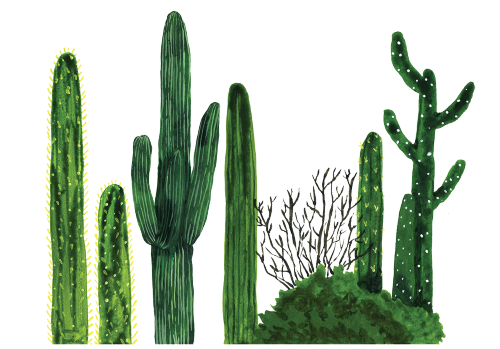- Letters: I/ACMOTX
- Words: 30
- Points: 125
- Pangrams: 1

|
The table provides clues for the roots of words in today's NY Times Spelling Bee. You're responsible for prefixes, suffixes,
tense changes, plurals, doubling consonants before suffixes, and alternate spellings of roots. An exception:
since Sam won't allow S, when the root contains an S, the clue may be for a plural or suffixed form. "Mice" for example.
If a clue isn't self-explanatory, try googling it.
The TL;DR about the site comes after the table.
Past clues are available here |
Today's puzzle
|  |
|
Table content
|
| answers covered | answer's first two letters | answer's length | clue for root (answer may need prefix, suffix, tense change, alt spelling, ...) |
|---|---|---|---|
| 1 | AC | 6 | African or Australian wattle tree |
| 1 | AC | 4 | Trendy smoothie berry |
| 1 | AT | 6 | Nerve disease or brain damage that causes slurred speech & poor muscle control |
| 1 | AT | 6 | Basic unit of matter, “… Ant” superhero, noun/adjective (… bomb) |
| 1 | AT | 5 | Unfinished room below roof; garret |
| 2 | AX | 5,9 | Statement or proposition which is regarded as being established, accepted, or self-evidently true; a dictum or truism |
| 1 | CA | 5 | Succulent plant with a thick stem that usually has spines, lacks leaves, and occasionally has brilliantly colored flowers |
| 1 | CA | 4 | ♀ sleeveless undergarment top, slang abbr. |
| 1 | CI | 4 | “Hi” or “Bye” in Italian (“… bella”) |
| 1 | CO | 5 | Central American raccoon |
| 1 | CO | 5 | Spherical or nearly spherical bacterium |
| 1 | CO | 5 | Paid jokester, or “… book” with superheroes |
| 1 | CO | 6 | Perpetrate, pledge, or put into a mental ward |
| 1 | IM | 4 | Prayer leader at mosque |
| 1 | IO | 4 | 9th Greek letter, I; or extremely small amount |
| 1 | MA | 4 | Permanently injure |
| 1 | MA | 4 | A skirt, dress, or coat that reaches to the ankle |
| 1 | MA | 5 | Short, pithy statement that expresses a general truth or rule of conduct |
| 1 | MA | 6 | The largest value of some quantity |
| 1 | MI | 4 | Flaky rock that breaks off in sheets |
| 1 | MI | 5 | Parrot someone’s speaking & mannerisms, verb; or the person doing it, noun |
| 1 | MI | 4 | Catcher’s glove, or Sen. Romney |
| 1 | OM | 4 | Leave out, verb |
| 1 | TA | 5 | Understood without being stated (… agreement), adj. |
| 1 | TA | 6 | Action planned to achieve a specific end (negotiating …) |
| 1 | TA | 6 | Japanese & dojo floor mats (畳) |
| 1 | TA | 4 | Cab (De Niro “… Driver” film) |
| 1 | TO | 6 | New Zealand small bird (Magnum, P.I star 1st name + breast, slang) |
| 1 | TO | 5 | Poisonous, adj.; or Britney Spears hit |
This site provides clues for a day's New York Times Spelling Bee puzzle. It follows in Kevin Davis' footsteps. The original set of 4,500 clues came from him, and they still make up about three quarters of the current clue set.
The "Bee Roots" approach is to provide explicit clues for root words, not every word. As logophiles, we are pretty good at putting on prefixes and suffixes, changing tense, and forming plurals (including Latin plurals!). The clues cover root words, arranged alphabetically by root word, with a count of words in the puzzle that come from each root. For example, if a puzzle includes ROAM and ROAMING, there will be a clue for ROAM and a count of 2. The root may not appear in the puzzle at all; for example, the 2021-07-23 Bee included ICED, DEICE, and DEICED. For such a puzzle, the clue would be for ICE with a word count of 3.
The Bee Roots approach involves judgement sometimes. For example, if a puzzle includes LOVE, LOVED, and LOVELY, how many roots are needed to cover them? LOVE and LOVED share the root LOVE, certainly, but LOVELY is tricky. LOVE is part of its etymology, but by now, the word means "exquisitely beautiful," which is a lot farther from the meaning of LOVE than swithcing to past tense. I'm inclined to treat LOVE and LOVELY as separate roots. You may not agree, which is fine. Another thing we logophiles share is a LOVE of arguing about words on Twitter.
A few words can have one meaning as a suffixed form and another as a stand-alone word. EVENING, for example. In those cases I will use the meaning that I think is more common.
One last complication, until another one pops up: a few roots have multiple spellings, for example LOLLYGAG and LALLYGAG. Depending on the day's letters, and maybe even the editor's whims, one or both could be in the puzzle's answer list. With such roots, you could see a word count of 2, even if there are no applicable prefixes or suffixes.
I will do my best to keep this site up to date and helpful (I hope). Check it out, and tweet feedback to @donswartwout Tweet to @donswartwout